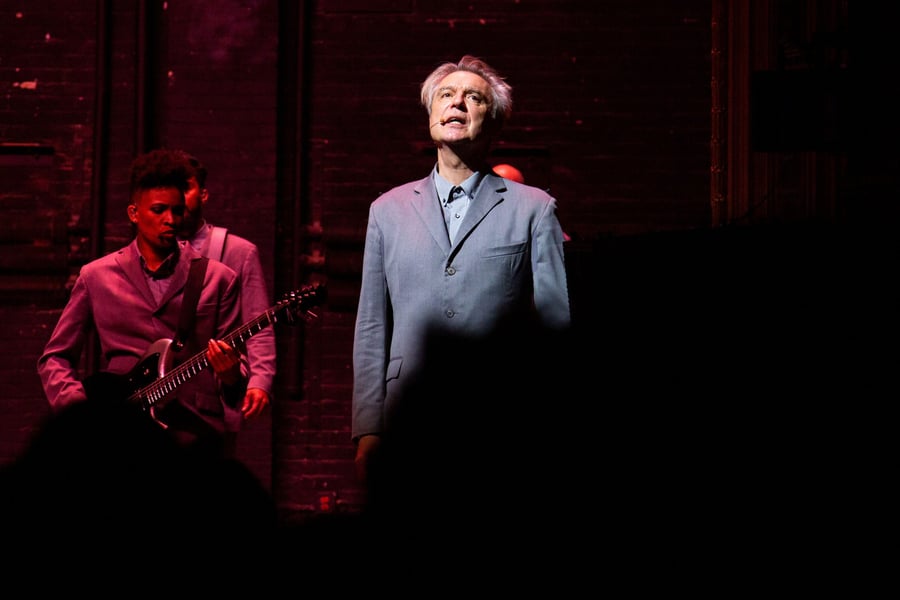David Byrne penned an op-ed Saturday about the coronavirus, self-isolation and “what connects us all when physical presence can’t.” An abridged version of Byrne’s op-ed published in the Wall Street Journal, while the singer’s Reasons to Be Cheerful online magazine posted the essay in its entirety.
“It’s ironic that as the pandemic forces us into our separate corners, it’s also showing us how intricately we are all connected,” Byrne wrote. “It’s revealing the many ways that our lives intersect almost without our noticing. And it’s showing us just how tenuous our existence becomes when we try to abandon those connections and distance from one another. Health care, housing, race, inequality, the climate — we’re all in the same leaky boat.”
He continued, “Viruses don’t respect borders. They get in even with extra screening and travel restrictions. Maybe less, but some slips in. And until there is a vaccine, no one is immune.”
Byrne then focused on how some cities around the world responded to the pandemic; in Vo, Italy, site of that country’s first COVID-19 death, the city immediately went into lockdown, tested all the residents and quarantined the infected until the coronavirus patients dwindled to zero. In Taiwan, satellite-tracked GPS ensured that quarantined people remain at home. In both cases, personal freedoms were temporarily stifled for the sake of national security.
“We have changed our behavior before. Ignaz Semmelweis was mocked when, in the mid-19th century, he said that doctors washing their hands before working with patients could save lives. After his death, other germ theorists like Louis Pasteur and Joseph Lister showed how correct he was, and the procedure was adopted. Doctors, and all of us, made this change willingly, without coercion. It became a social norm,” Byrne wrote.
“What is happening now is an opportunity to learn how to change our behavior. For many of us, our belief in the value of the collective good has eroded in recent decades. But in an emergency that can change quickly.”
He continued, “We might be too far down the road to test every asymptomatic person, but a change in our mindsets, in how we view our neighbors, could lay the groundwork for the collective action we’ll need to deal with other global crises. The time to see how connected we all are is now.”
Love Music?
Get your daily dose of everything happening in Australian/New Zealand music and globally.



































